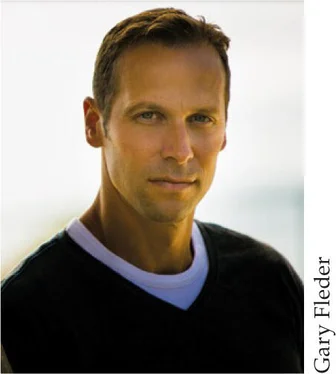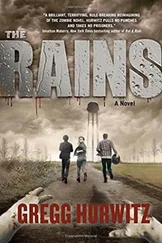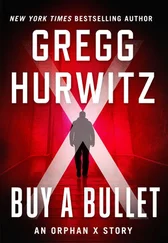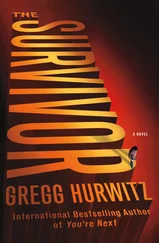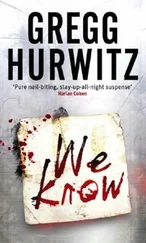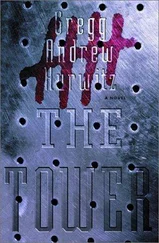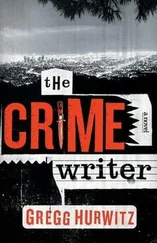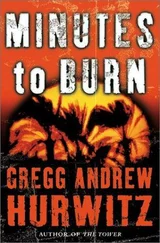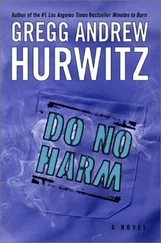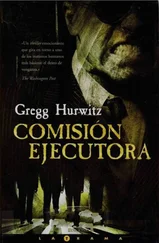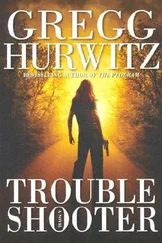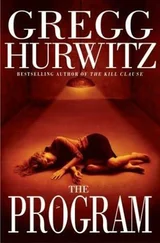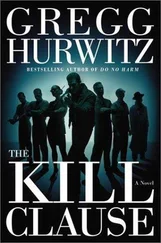“Two years after she parted with him, she took a ferry from Essex one night and slipped overboard with stones in her pockets. Very Kate Chopin.”
Despite the crack, Evan could see the pain in her eyes. A small burst of blood vessels colored her cheek just in front of her left ear, a spiderlike pattern where her concealer had faded. He could sense her years more now than he had in the Buenos Aires night when she’d seemed to glow in the haze of their shared anticipation.
Veronica said, “Her last correspondence to me was to look after him if he ever needed anything. A dying wish. Very dramatic. But impossible to ignore.”
He tugged at his mouth, felt the fleshy pinch of his lower lip. “How did Andre know to get in touch with you?”
“I was the one who dropped him off at the first foster home. After all the legal steps, the paperwork. She couldn’t bear to. And after she was … gone, when he needed to be placed in a facility for older boys, I made sure he was moved to Pride House. That’s how I knew about it.…”
“To pull strings and move me there later.” He caught himself before he could add, After you dumped me off with an incapable couple .
She nodded. “When he came searching for his mother years later, I was the only name he could find. I suppose I’m the only connection to family he ever found.”
“What did you tell him?”
“That his mother had passed away of cancer. He’s contacted me sporadically over the years. When he wanted advice. When he needed bail money. When he was in trouble.”
“All these years you knew I was there. And you knew about him. But you kept us both in the dark.”
“I bore that burden.”
“Did you? Or did we?”
She sighed. “I don’t know. It’s one of the awful secrets to getting older. You don’t ever get the answers. Every time I consider myself an adult, I think back five years to when I also thought of myself as an adult. And I’m aghast at how staggeringly blind I was. Maybe what I hold to be true right now will seem just as ignorant when I reflect back on it years from now.” She arched an eyebrow. “If I’m around.” She examined the flute once more. “Maybe that’s all growing up is. Knowing in real time that you don’t know anything.”
“So you think we’d have been worse off if we were told the truth?”
“Don’t you?”
Evan looked down at the union of his hands. Fingers linked, pressure at the knuckles, like he was holding on to nothing too tightly. He considered her question for a very long time.
She watched him think. “It’s a lost art.” Her voice carried a blend of admiration and approval.
“What’s that?”
“Entertaining an idea before rejecting it.”
“I don’t know the answer,” he said. “Whether I’d have been better off. My background was tough in most ways. I was diminished by it. And strengthened by it. I don’t think you get to have one without the other.”
She nodded several times too many. “What would you have preferred? Growing up riding horses and sailing? The finest schools? Like the boys I grew up with, my friends’ children and now grandchildren? I can see right into them. They’re as solid as a plank of birch and just as deep. Ninety percent deadwood. Catch a spark and they go up in flame. No. You had challenge. Purpose. Honed by hardship.”
“I did.”
“And yet.” Her eyes, abruptly, were moist. “I wish I could have given you so much more.” She blinked rapidly, reached for her glass on the acrylic side table, but saw that it was empty.
He said, “Why…”
… didn’t you want me?
He caught himself.
“Why did you decide to give up the baby?”
She blinked a few more times, confused, and he realized he’d left out the possessive. “What baby?”
One syllable, but it was hard to choke out. “Me.”
She’d regained her composure, her words smooth and breezy. “My circumstances weren’t suited to it.”
“It?”
“Being a mother. Having a child.”
“I see.”
“I suppose you want to know about your father.”
Jack sitting across the dining table from twelve-year-old Evan in the low light of the farmhouse, twirling his pasta around his fork: The hard part isn’t turning you into a killer. The hard part is keeping you human . That square, rugged face. Blue flannel and classical music.
“My father is the man who rescued me from the foster home,” Evan said. “My father is the man who raised me.”
“It’s just as well,” she said. “I don’t know much about your birth father anyway.”
“One-night stand?” Evan said.
“No.” Her eyes twinkled. “A whole lost weekend.”
“Sounds classy. Let me guess, outlaw biker.”
“Rodeo cowboy. Bronc rider.”
“You’re not as funny as you think you are.”
“Well,” she said, “sometimes I am.” She tilted her glass at him. “Would you be a dear and freshen this up for me?”
He could tell that if she stood, she’d be unsteady on her feet from the alcohol. And she didn’t want him to see.
He rose and plucked the glass from her hand. The Perrier-Jouët bottle was frigid to the touch, and it lifted from the bucket trailing ice water. It was mostly empty. He poured.
Behind the bar a few pill bottles rested beside Veronica’s clutch purse. Vitamin K. Calcium. And a prescription written under her name for rifaximin, an antibiotic used to soothe stomach problems from traveling. Veronica presented such a resilient and polished façade that he hadn’t considered the human fragility beneath.
The plush carpet muted his steps as he returned the glass to her. She took it with a nod of thanks, a flush sitting high on her cheeks and her throat. She patted the cushion at her side. He took a seat but left a good amount of space between their hips.
She said, “Okay.” She sipped. Sipped again.
The ARES dug into his ribs. He shifted the holster anchoring on the belt to make sure it wasn’t pointing at his femoral artery or more sensitive anatomy yet.
He watched Veronica looking at him and had trouble reading her expression. Intrigue? Wariness? My son, the assassin .
He mustered his nerve. The words felt like pulling barbed wire through a closed fist. “You said I had a middle name. It wasn’t on any of the paperwork. What was it?”
She said, “Bartholomew.”
“Really?”
“No.” Her lips pursed, a not-quite smile.
“Forget it.”
“I’m sorry,” she said. “It wasn’t … it wasn’t on the paperwork because I didn’t want to name you. I thought if I named you, I couldn’t bear to part with you. I called you baby boy. For the week I had you, I called you baby boy.”
The words came into him as such, unattached to the greater meaning they dragged beneath the surface. He could register them consciously, but the emotional impact felt numbed, dull, like sound traveling underwater.
She’d had him a week. She’d been terrified of bonding with him or parting with him. She’d called him baby boy .
She continued, “But when I left you with the Krausses, the paperwork, I needed to put down something, a name. And I realized I’d already named you even though I didn’t know it. Evan.”
“What … what was I like?”
“You barely cried. The doctor thought something was wrong with you. But I knew there wasn’t. I could see how sensitive you were, how much you were taking in, that you were overcome by it. And to survive you had to shut off parts of yourself, what you felt, what you reacted to. God, what do I know? Maybe it was all projection. My own broken heart mapped onto a newborn.”
His RoamZone chimed in his pocket, and he fished it out. A text from Joey listing five Chinese restaurants in El Sereno that fit the search parameters.
Читать дальше
